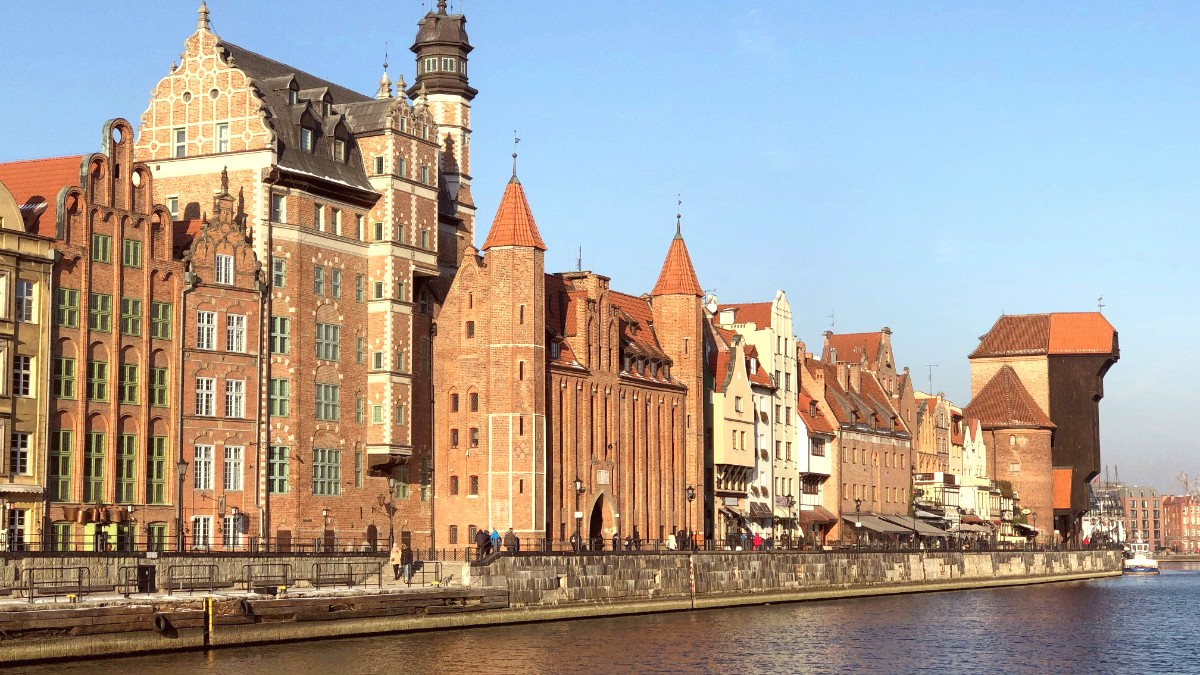
Pomerania, Poland
Passport validity is a consideration; typically, it should extend at least three months beyond your planned departure from the Schengen area. Some countries may require six months. Consult official sources for current regulations.
Digital entry forms or health declarations are subject to change. Stay updated with the latest travel advisories for seamless entry.
Travel insurance safeguards against unexpected events like medical emergencies, trip cancellations, or lost luggage. Policies vary, so select one that aligns with your itinerary and activities.
A policy covering medical repatriation and emergency evacuation is a strong consideration.
Protects against health-related costs.
Hospital stays, doctor visits, emergency dental, prescription medications.
Pre-existing conditions (unless specified), elective procedures.
Covers disruptions to your journey.
Cancellation, delay, interruption, missed connections, lost deposits.
Change of mind, airline insolvency (unless specified), acts of war.
Safeguards your belongings.
Lost, stolen, or delayed luggage, personal liability.
Leaving items unattended, undeclared valuables, normal wear and tear.
Some policies cater to specific traveler types, like adventure travelers or digital nomads. These often include coverage for higher-risk activities or extended stays abroad. Compare plans to match your travel profile.
Read the fine print for deductibles, coverage limits, and any exclusions. Understand the claims process before you travel. Keep policy documents accessible, both physically and digitally.
World Nomads provides coverage for adventurous travelers.
SafetyWing policies cater to digital nomads and remote teams.
Insubuy specializes in medical and travel coverage for visitors to the US, also relevant for multi-destination trips.
AirHelp assists with flight delay or cancellation compensation.
Consider contacting your local insurance company for options.
Gdansk offers various options for internet access and device charging. Consider local SIM cards or e-SIMs for mobile data.
Local SIM cards are widely available and affordable. Major providers include Play, Orange, T-Mobile, and Plus. Top-up cards are sold in kiosks and supermarkets. Wi-Fi is common in cafes, hotels, and public spaces.
Poland uses Type E power sockets, which feature two round pins and a hole for the grounding pin. The standard voltage is 230V at 50Hz. Ensure your devices are compatible or use a voltage converter.
Digitize important documents and store them securely in the cloud or on an encrypted USB drive. This ensures access even if physical documents are lost or stolen.
The Polish Złoty (PLN) is the official currency. While cards are widely accepted, carrying some cash for smaller purchases, local markets, or tips is wise.
Exchange offices, known as "kantor," operate throughout Gdansk, especially in tourist areas. Compare rates and watch for hidden fees. Airports and major train stations often present less favorable exchange rates.
Banks also handle currency exchange, sometimes with better rates than independent kantors, but with more limited hours.
Major credit and debit cards (Visa, Mastercard) receive wide acceptance in shops, restaurants, and hotels. Always notify your bank of your travel plans to avoid card blocking.
Widespread acceptance, convenient for larger purchases.
Foreign transaction fees may apply, ATM fees for cash withdrawals.
ATMs are broadly available. Look for bank-affiliated ATMs to avoid excessive fees. Dynamic Currency Conversion (DCC) might be offered; always choose to be charged in PLN.
Convenient access to local currency.
Beware of high ATM fees or unfavorable exchange rates from non-bank ATMs.
Gdansk presents a generally affordable destination compared to Western European cities. Daily expenditures vary based on activities and dining choices. Local markets offer cost-effective options.
Utilize public transport; dine at local eateries; seek free attractions.
Frequent taxi use and fine dining elevate costs.
| Item | Cost (PLN) | Notes |
|---|---|---|
| Local Beer (0.5L) | 8-15 | Restaurant/pub prices |
| Public Transport Ticket (single) | 3.80-4.80 | Varies by zone/time |
| Museum Entry | 20-50 | Typical adult ticket price |
Gdansk features an efficient public transport network encompassing trams, buses, and local trains. This network makes getting around the city and nearby areas straightforward.
Extensive network covers central Gdansk and surrounding districts.
Supplement the tram network, extending to areas without tram access.
Connects Gdansk with Sopot, Gdynia, and Gdansk Airport.
Purchase tickets from machines at stops, kiosks, or directly on some vehicles.
Validate your ticket immediately upon boarding a tram or bus. Inspectors frequently check for valid tickets.
Various ticket types exist: single-use, 75-minute, 24-hour, and multi-day passes. Select the option best suited for your travel plans.
Children, students, and seniors may qualify for discounted fares; present valid ID.
Available at designated stands or by calling. Ride-hailing apps like Bolt and Uber are also active.
Gdansk is bike-friendly with dedicated paths. Bike rentals are available for exploring the city at leisure.
The Old Town and Main Town are highly walkable, perfect for leisurely exploration.
Driving in Gdansk city center can be challenging due to pedestrian zones and limited parking. Consider using public transport or taxis within the historical areas.
Gdansk Lech Wałęsa Airport (GDN) is located about 12 km from the city center. Several options connect the airport to downtown Gdansk and the surrounding Tri-City area.
Direct train to Gdansk Główny (Main Station) and other Tri-City destinations. Journey duration about 25-30 minutes.
Regular bus lines connect the airport to the city center and other areas. Night buses also operate.
Taxis are available outside the terminal. Bolt and Uber offer convenient alternatives via their apps.